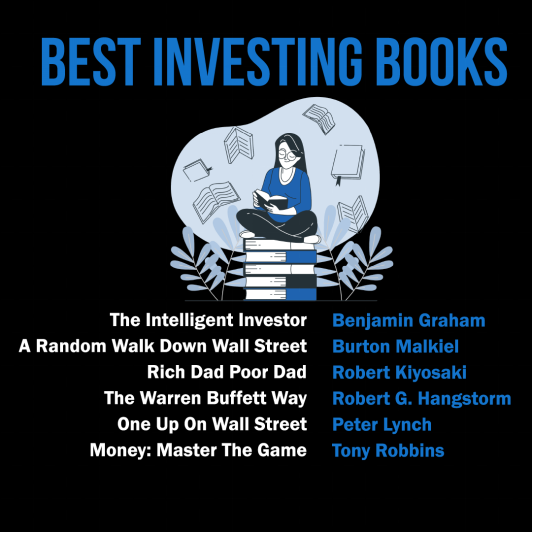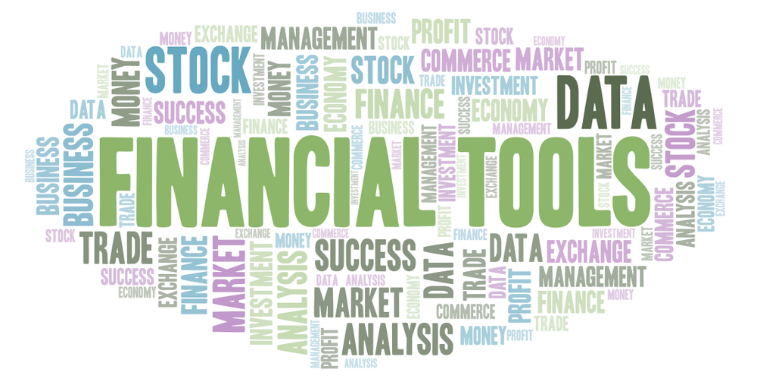Chapter 16: Financial Education and Resources
课程学习目标:
介绍: Continuous financial education is crucial for making informed financial decisions and achieving long-term financial goals. This chapter covers various resources and tools to stay informed about personal finance, utilize financial tools, and work with financial professionals.
- Staying Informed about Personal Finance: Learn about valuable books, online resources, podcasts, and videos that can enhance your understanding of personal finance and keep you updated on financial trends and strategies.
- Utilizing Financial Tools and Software: Discover the benefits of using financial tools and software for budgeting, goal setting, investment tracking, and accessing financial education and support.
- Working with Financial Professionals: Understand the roles, benefits, and considerations of working with financial planners, investment advisors, and tax professionals to achieve your financial goals.
A. Staying Informed about Personal Finance

Figure: A conceptual doodle on a napkin illustrating personal financial planning, accompanied by an espresso cup and coins on a rustic wooden table.
来源: Shutterstock
Continuously educating yourself about personal finance is crucial for making well-informed financial decisions and staying on top of your financial goals. Consider using the following resources to broaden your knowledge:

数字: The infographic lists “Best Investing Books” that are considered must-reads for anyone interested in learning about investing. The books mentioned are:
- “The Intelligent Investor” by Benjamin Graham
- “A Random Walk Down Wall Street” by Burton Malkiel
- “Rich Dad Poor Dad” by Robert Kiyosaki
- “The Warren Buffett Way” by Robert G. Hagstrom
- “One Up On Wall Street” by Peter Lynch
- “Money: Master The Game” by Tony Robbins
These books cover a range of investment philosophies, from value investing to personal finance, and offer insights into the strategies of some of the world’s most successful investors. For practical use, readers should consider starting with one book that aligns most closely with their investment style or goals and apply the principles learned to their own investment strategies.
资料来源:自定义信息图
- 书籍和出版物: Reading personal finance books and publications can provide in-depth knowledge on various topics, such as budgeting, investing, and retirement planning. Some popular titles include “Rich Dad Poor Dad” by Robert Kiyosaki, “The Total Money Makeover” by Dave Ramsey, and “Your Money or Your Life” by Vicki Robin and Joe Dominguez.
Online Resources: Many websites and blogs offer personal finance advice and insights, such as NerdWallet, Investopedia, and The Simple Dollar. These resources can help you stay up-to-date on financial news, learn new strategies, and discover helpful tools.
Podcasts and Videos: Listening to personal finance podcasts or watching videos can be an engaging way to learn about money management. Some popular podcasts include “The Dave Ramsey Show,” “So Money” by Farnoosh Torabi, and “The Indicator from Planet Money.” Additionally, YouTube channels such as Graham Stephan and The Financial Diet offer informative and entertaining personal finance content.
B. Utilizing Financial Tools and Software

数字: A vibrant word cloud illustration centered around financial tools.
来源: Shutterstock
Using financial tools and software can help you effectively manage your finances and stay on track with your goals. The Simple Financial Community’s personal finance application is designed to provide you with valuable insights and resources to better understand your finances and budgeting:
- Budgeting and Expense Tracking: Our application offers user-friendly budgeting tools that help you create, maintain, and adjust your budget as needed. With customizable categories, you can easily track your income and expenses to identify spending habits and make necessary adjustments.
- Goal Setting and Progress Monitoring: Set short-term and long-term financial goals within the application and track your progress towards achieving them. Receive timely updates and reminders to help you stay focused on your financial objectives.
- Investment Tracking and Analysis: Monitor your investments and analyze your portfolio’s performance within the application. Gain insights into your asset allocation and make informed decisions regarding your investment strategy.
- Financial Education and Support: Access a wealth of educational resources within the application, including articles, tutorials, and webinars, to expand your financial knowledge. Join a supportive community of users and experts who can offer guidance and answer questions as you navigate your financial journey.
By leveraging a combination of educational resources and the Simple Financial Community’s personal finance application, you can gain the knowledge and tools necessary to make informed financial decisions and achieve your financial goals.
C. Working with Financial Professionals
数字: Senior couple receiving financial advice from a consultant, focusing on pension, bills, and insurance paperwork.
来源: Shutterstock
Collaborating with financial professionals can provide valuable guidance and expertise to help you achieve your financial goals. Here are some common types of financial professionals, their pros and cons, and best practices for working with them:
Financial Planners
Financial planners assist clients in creating comprehensive financial plans, which may include budgeting, savings, investing, retirement planning, and insurance strategies.
优点:
- Holistic approach: Financial planners look at your entire financial situation to create a tailored plan that meets your unique needs and goals.
- Expertise: Financial planners have specialized knowledge in various aspects of personal finance and can offer professional advice.
缺点:
- Cost: Hiring a financial planner can be expensive, with fees varying based on their fee structure (e.g., hourly rate, flat fee, or percentage of assets under management).
- Potential conflicts of interest: Some financial planners may receive commissions from selling specific financial products, potentially affecting their recommendations.
Best Practices and Tips:
- Look for certified financial planners (CFPs) who have met rigorous education, examination, and experience requirements.
- Verify the planner’s credentials and disciplinary history through organizations such as FINRA or the SEC.
- Discuss the planner’s fee structure and potential conflicts of interest upfront.
- Investment Advisors
- Investment advisors specialize in managing clients’ investment portfolios, offering recommendations on asset allocation, risk management, and specific investment products.
Investment Advisors
优点:
- Expertise: Investment advisors have specialized knowledge of financial markets and investment products.
- Time-saving: Investment advisors can manage your investments, allowing you to focus on other aspects of your financial life.
缺点:
- 成本: Investment advisors typically charge fees based on a percentage of assets under management, which can be expensive for some investors.
- Limited scope: Investment advisors may focus primarily on investments and not address other aspects of your financial situation.
Best Practices and Tips:
- Choose a registered investment advisor (RIA) who is registered with the SEC or a state securities regulator.
- Discuss the advisor’s investment philosophy and strategies to ensure they align with your goals and risk tolerance.
- Review the advisor’s performance history and compare their fees with other advisors.
Tax Professionals
- Tax professionals, such as certified public accountants (CPAs) or enrolled agents (EAs), specialize in tax planning, preparation, and compliance.
优点:
- Expertise: Tax professionals have in-depth knowledge of tax laws and regulations, ensuring accurate and compliant tax filings.
- Tax-saving strategies: Tax professionals can recommend strategies to minimize your tax liability, potentially saving you money.
缺点:
- Cost: Hiring a tax professional can be expensive, particularly for complex tax situations.
- Seasonal availability: Some tax professionals may be difficult to reach outside of tax season due to high demand.
Best Practices and Tips:
- Choose a tax professional with relevant experience and credentials, such as a CPA or EA.
- Ensure the tax professional has experience with your specific tax situation (e.g., self-employment, rental properties, or foreign income).
- Discuss the professional’s fees and availability upfront to avoid surprises.
When working with any financial professional, always do your due diligence, ask for referrals, and ensure they are acting in your best interest. A well-chosen financial professional can offer valuable expertise and support to help you achieve your financial goals.
主要课程信息:
结语: Staying informed and leveraging financial resources are essential steps toward financial empowerment. By using educational materials, financial tools, and professional guidance, you can make confident, informed decisions to secure your financial future.
- Staying Informed about Personal Finance: Continuously educating yourself through books, online resources, podcasts, and videos is essential for staying updated on financial strategies and trends. For example, “The Intelligent Investor” by Benjamin Graham and websites like NerdWallet and Investopedia offer valuable insights for financial growth.
- Utilizing Financial Tools and Software: Financial tools and software can significantly enhance your financial management. The Simple Financial Community’s application, for instance, provides budgeting tools, goal tracking, investment analysis, and educational resources to help you stay on top of your finances.
- Working with Financial Professionals: Collaborating with financial professionals, such as financial planners, investment advisors, and tax professionals, can provide specialized knowledge and guidance. Choosing certified and experienced professionals ensures that you receive tailored advice to meet your unique financial needs.

